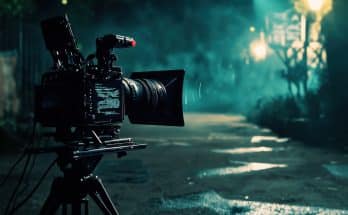William Wayne – Above the line. A life story about the iconic film writer, producer and director. A meteoric rise from humble beginnings.
The Indie Movie scene has literally boomed over the last few years. The movie industry has recognised it on almost an even keel with some big-budget productions.

“The most honest form of filmmaking is to make a film for yourself.”
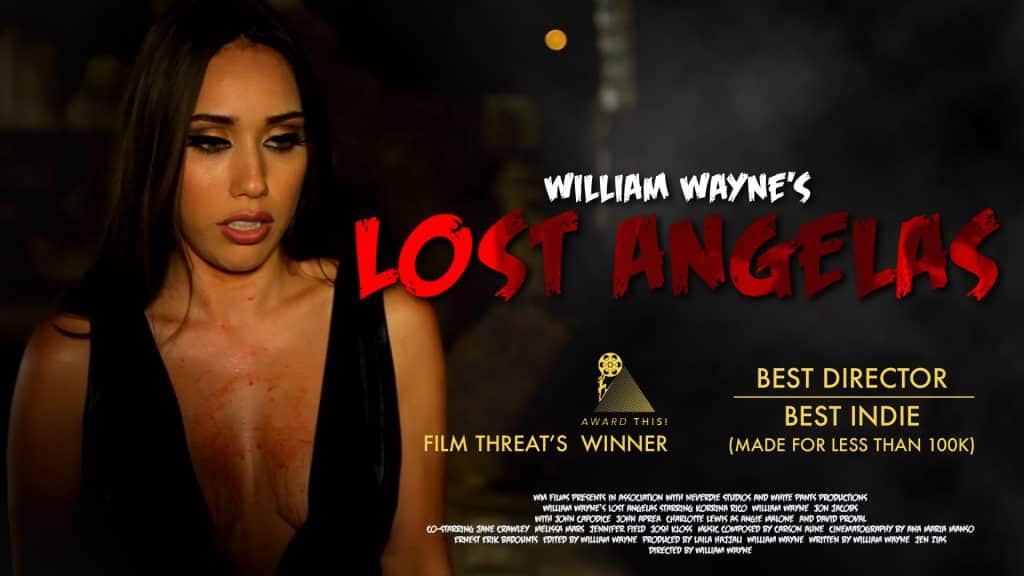
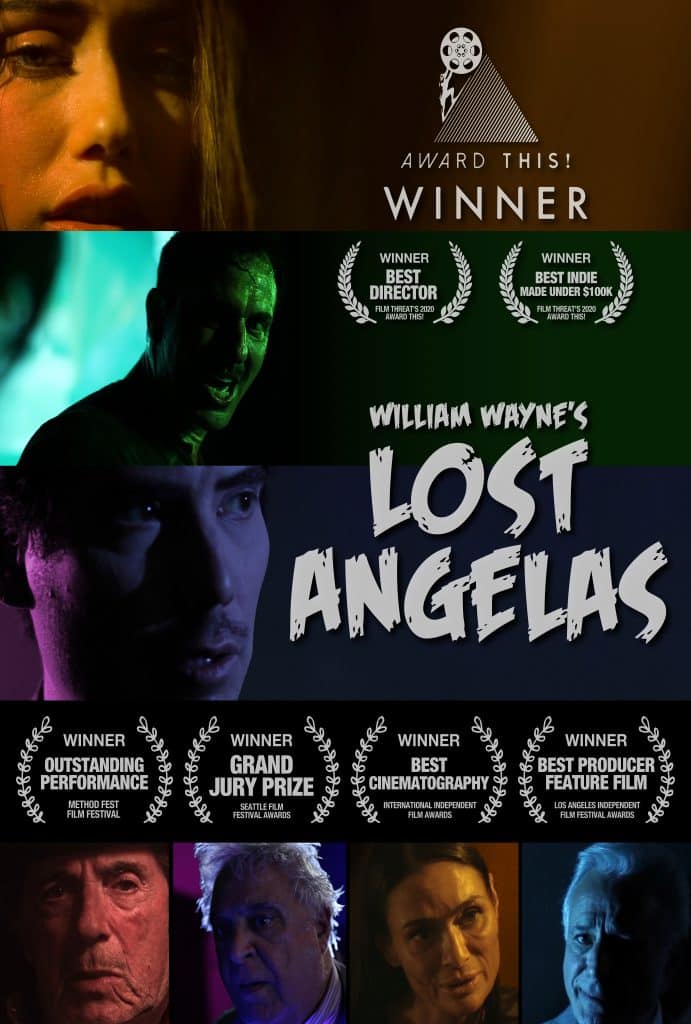
Poster features – Jon Jacobs (top) and Charlotte Lewis (Bottom 2nd from right).
Writers, producers and directors have struggled to raise funding and battled with completing projects. Finally, however, these unsung heroes, often shunned by those who have followed a traditional route, are now emerging from the sidelines to share the limelight. We caught up with William Wayne, the iconic film writer, producer and director. Today, his meteoric rise from humble beginnings places him firmly in a position of decision-making. Now the Seattle Film Festival director with successful movies under his belt, he talks to us about his professional and personal growth.
“A story should have a beginning, a middle, and an end…but not necessarily in that order.”
– Jean-Luc Godard.
How did your story begin?
I grew up on a farm in Illinois outside of Chicago. Growing up, my mother was an elementary school teacher and noticed I was interested in the violin. So when I was four, she started me on violin lessons which I loved. My father, a talented artist and art teacher taught me how to paint. That is when I learned “even mistakes are beautiful” in art. While in school, I won several nationwide art contests which later helped pay for part of my college tuition at the University of Washington.
I discovered my passion for acting during my senior year at the University of Washington. After graduating in Communication, I performed in the Seattle-based Fringe theatre, where I played a wide variety of characters. I loved acting in plays in the Northwest as I found it extremely rewarding and soon was cast in my very first role, a small one, in a feature film with Dana Ashbrook (Twin Peaks), Tisha Campbell (My Wife and Kids), Brock Peters (To Kill a Mockingbird) and Billy Dee Williams (Star Wars Trilogy). Later, I acted in several features, including one co-starring Rosanna Arquette, which was nominated at the Tribeca Film Festival and spurred me on to study filmmaking and write a screenplay titled Lost Angelas. Since I didn’t have much of a budget, I bartended at several locations in LA to help finance Lost Angelas.
Your story is textbook, as you started as a bartender and up.
Yes, I studied acting and worked as a bartender for years. I met so many people who became lifelong friends during this time, many who later acted or contributed their skills as crew members for my film. So when it came time for the premiere of Lost Angelas, it really meant a lot to me that they showed up in support, and we even filled a 400-seat theatre at the Method Fest Film Festival.
How much was luck, and how much was skill?
The question of how much was luck and how much was skill is a good one. My luck improved when I decided to make my own film.
As my filmmaking skills progressed, I won several short film awards. After that, I focused purely on directing my feature film screenplay. I tried to cast an actor friend in the role I eventually played in Lost Angelas. However, due to my indie budget, I realized I would have to film and edit the movie over several years. My friend wouldn’t have that kind of availability, so I played the role myself and I am glad I did, as I really loved acting in it.
During the filming and editing process of Lost Angelas, I continued working as a bartender to finance the production. This proved challenging as I would only have a few days off a week to work on my film and it took me six years to finish the movie. However, I was very fortunate that my lead actors, Korrina Rico, Jon Jacobs and John Capodice, were committed to their roles in the film over the complete span of the production. During this time, we were also fortunate to include the exceptional talent of David Proval (The Sopranos), John Aprea (Godfather 2) and Charlotte Lewis (The Golden Child) to our cast.
“Don’t let anyone ever make you feel like you don’t deserve what you want.”
-Heath Ledger
Did the story of your film just come to you, or did you have to dig deep to find it?
I have always loved Film Noir as well as Neo-Noir, and I wanted to make something that would live in that genre. As I started to think about what I would like to watch, a plot outline jumped into my head: Angela Rose, a famous actress nominated for the upcoming awards season, goes missing, and the only lead to her disappearance is her ex-fiancé, a struggling screenwriter. Haunted by memories he cannot explain, the screenwriter journeys through the underbelly of Hollywood and uncovers a secret connection he has with a vanished movie star, also named Angela who had similarly disappeared thirty years ago.
I wrote and rewrote the screenplay and had a couple of friends take a look at it, including Jen Zias. I liked her insight and thought we would work well together. Within a year, we brought the script to several notable veteran actors whom I admired, and they were interested in being a part of the project.
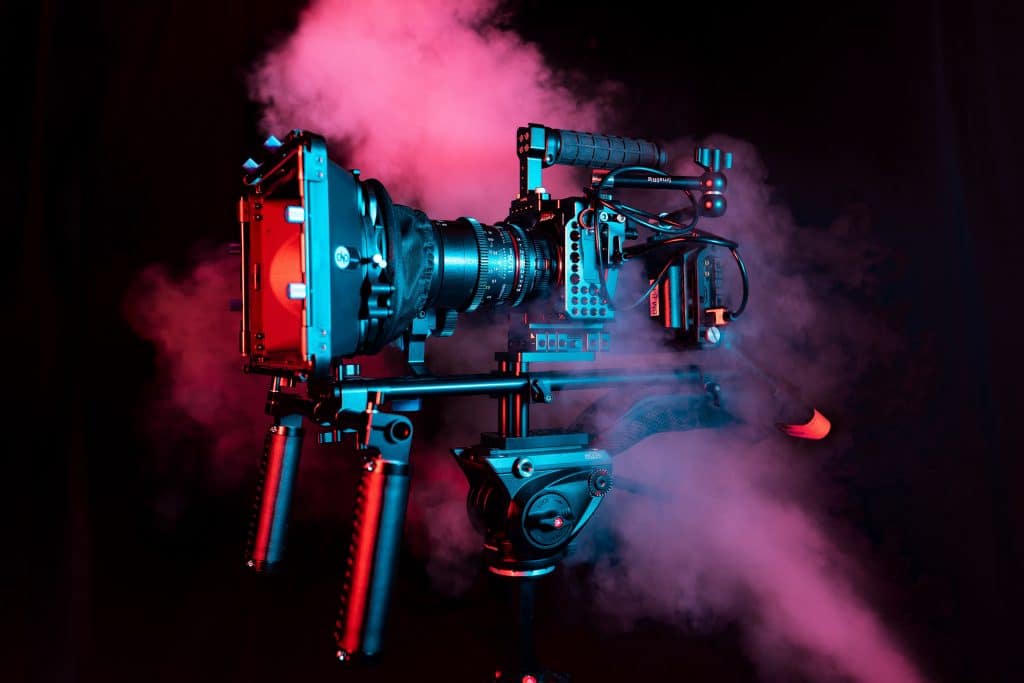
Six years to make a movie is testing. What lessons did you learn?
Wow, my ambition with Lost Angelas was originally to get it accepted in film festivals and have its premiere in a movie theatre. I quickly found this would be more challenging than it sounded. What I learned when I was younger, practising the violin and learning to paint, became valuable in making my film as I knew that the time put into working on something does pay off. No one could give me a shortcut to making my film work because, ultimately, I had to learn it and earn it myself. For example, each time I went into the editing room after filming a scene, I had to start from scratch and build it. There was no shortcut to making a scene work; I had to continually earn it.
What did you find as the line between creativity and decision-making?
Planning out my creative vision was essential because once we were on set, I was busy problem-solving. The quicker I could solve each issue, the better the shoot turned out and the more time I had for the artistic side of filmmaking. I often drew upon that lesson I learned as a kid from my father regarding art, “even the mistakes are beautiful.” I tried to implement that concept while filming Lost Angelas after an accident or mistake happened. I saw it as an opportunity to turn this into something beautiful.
I learned in time that tenaciousness does pay off. Before long, the film started taking shape and began to interest friends to see my latest edit, many of whom would end up working with me on the post-production process.
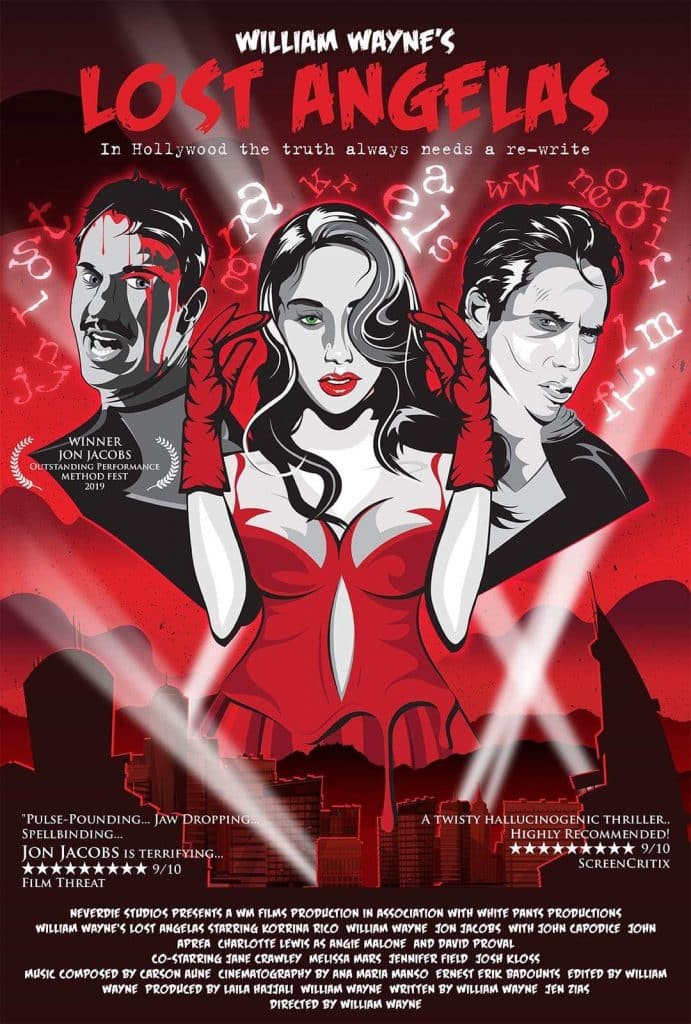
We turned the corner when Lost Angelas was accepted to the Method Fest Film Festival. The Lost Angelas premiere at the festival was sold out and couldn’t have gone better. I was particularly impressed at how great the festival directors treated all the filmmakers. Soon after that, we began to get accepted into additional festivals and won more awards. It all culminated when we were nominated at Film Threat’s “Award This!” show and won Best Indie Film and Best Director.
I didn’t know it yet, but the process I was learning by having Lost Angelas play in film festivals would be very beneficial.
How did you get involved with the Seattle Film Festival, and why?
Lost Angelas played theatrically for a week at the Laemmle Theater in Pasadena at the Playhouse 7. Next, I flew up to Seattle to have it played for a week at the Grand Illusion Cinema. At one of my screenings, I met the filmmakers who started the Seattle Film Festival in 2013. They were re-launching their festival after a couple years away and encouraged me to submit my film. Lost Angelas screened successfully at the Seattle Film Festival, and I had a great time.
In 2020 when the pandemic started, I moved from LA to Seattle and reconnected with the festival. I was given a chance to work as a festival judge. The following year turned out to be a busy year for me as I was hired to direct a music video, edit commercials, campaigns and a variety of other projects. In 2022 I was thrilled to hear from the festival once again as they were going to screen movies back in the theatre for the first time since the pandemic began. At this time, I was offered the opportunity to organize the festival. I was very excited about the challenge and brought on my co-producer of Lost Angelas, Michael Rey, to be a co-director with me.
I loved being a festival director as I had the opportunity to champion deserving films and filmmakers worldwide. This year the festival presented a large selection of films from talented student filmmakers to acclaimed visionary directors. I am in awe of the quality of storytelling, and filmmaking exhibited to the audience at this year’s festival.
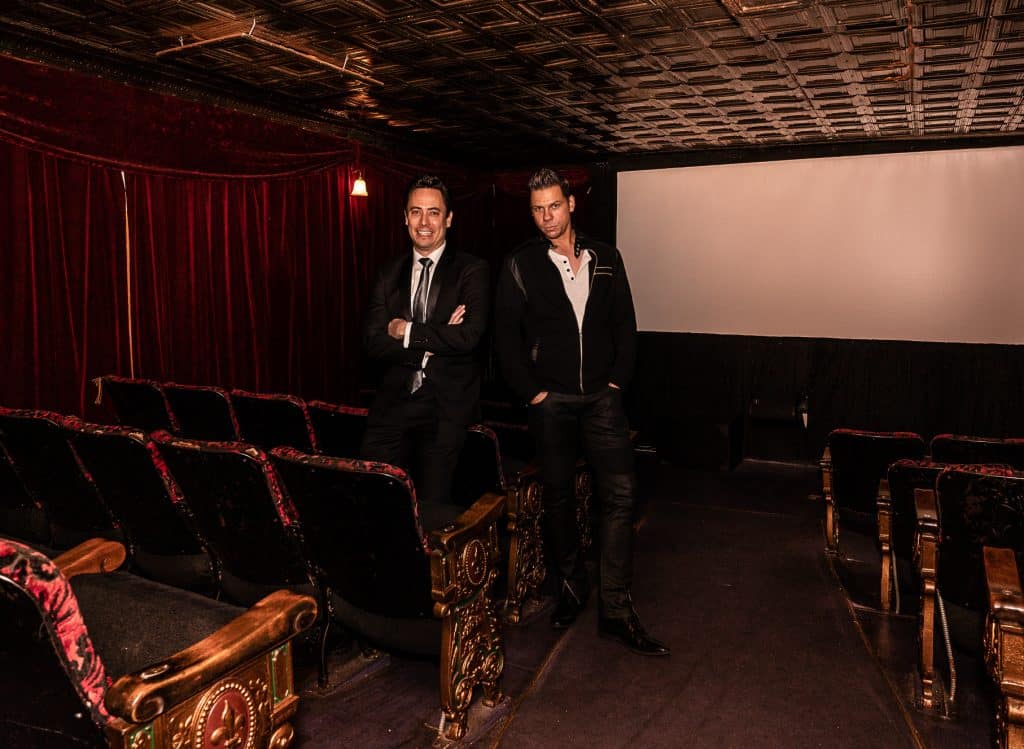
Directors of the Seattle Film Festival
Photography by – @marinaboichuk
Featuring Michael Rey the co-producer of Lost Angelas and the co-director of the Seattle Film Festival.
Indie vs studio movies, what are your thoughts?
I identify with the stories and struggles of indie movies but also enjoy studio productions. In some cases, creativity is born out of a lack of budget, which is where some indie movies shine. For instance, when I couldn’t film again at a location we used previously, I would paint the walls of my apartment and have it stand in for that location. Although I had to do this several times, no one was the wiser, including my assistant editors. An additional benefit of this compromise was that now I could take my time to set up complicated shots necessary for my transitions in editing.
It is great that audiences have gotten behind studio films such as big-budget superhero movies. However, indie films often present different voices and raw storytelling that are rare in big-budget movies. I think many studio movies may be more concerned about making their movie for global audiences where it can make more money internationally but in doing so, the movie may lose quite a bit of character and uniqueness.
If you could turn back the clock, would you have done anything differently and why?
Most definitely. One thing I was surprised to find is that I didn’t need the most expensive camera or the biggest crew to make the best version of my film. Some of the days when I had a cheaper camera and smaller crew due to budget restraints, I would come away with a more beautiful and better scene. I think this adds to the philosophy that if you have a script, go out and film it. You don’t have to wait for a million-dollar budget to get permission to be a filmmaker.
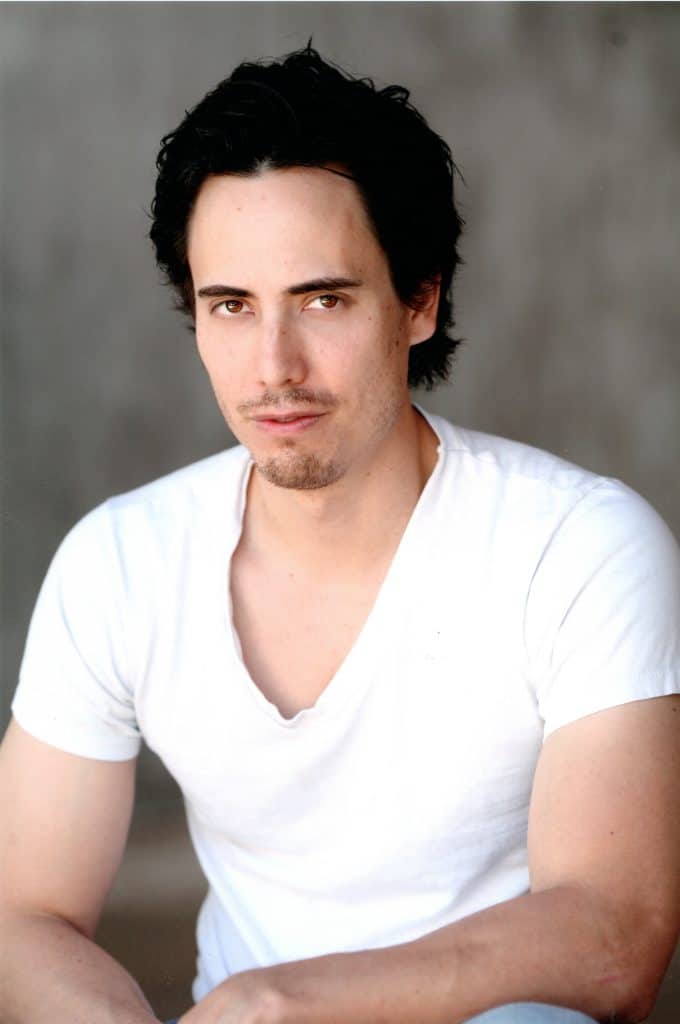
Shorts, why are they proving to be so popular?
Shorts are a great way of learning filmmaking. They take less time to make and you can learn quicker and get faster feedback because of this. It also works well in this era where YouTube and social media have an audience with a shorter attention span. Another advantage of making a short film is that the odds are better of getting it into a film festival that has a limited amount of time reserved in a theatre. For instance, instead of playing one 90-minute feature film, a festival can play six or seven short films from different filmmakers.
I recently directed a music video for a song on an album nominated for a Grammy. I enjoyed how the film shoot had such a fast turnaround. The idea, the planning, the execution of the filming and the editing all happened within a week. That was very refreshing compared to my six-year journey making Lost Angelas.
With all that being said, I still love making feature films. I love the determination, persistence and creative exploration where a feature film can take you.
In the future, how do you think your industry will change?
The industry has been changing so much. It wasn’t long ago when making an indie feature film meant you needed a budget of at least half a million dollars. You would have also needed to shoot your film on a 35 millimeter film camera to have a chance to get into a film festival. The process of doing this would have been costly. Now, digital filmmaking can be done with consumer cameras. As a result, budgets are drastically lower and people who might not have had a chance to direct can now display their talent.
In addition, digital platforms allow filmmakers to show their work. Previously, films competed for the same few cable stations. I love indie films, but the biggest question for indie filmmakers is how to get a good return on their investment. If their movie is not being produced by a studio, is there a formula to make a profit? Many filmmakers I have spoken with discuss and explain how there is a huge audience for indie films, but their contracts with these distributors do not always show this. This is an area I wish to address on our panels at the festival next year.
I was very fortunate navigating these waters with Lost Angelas as I was guided by one of my actors, Jon Jacobs, who had previously produced and distributed many films. In the future, I would like to see distributors offering better deals to indie filmmakers that reflect the value of their films.
“ I just wanted to say thank you Sanj for the amount of work you put into this interview. From the initial phone call to your research and follow-up emails, I really appreciate your professionalism.”
– William Wayne
We wish William success with his new projects and hope to catch up with him again in our Podcast series soon.
GET IN TOUCH


